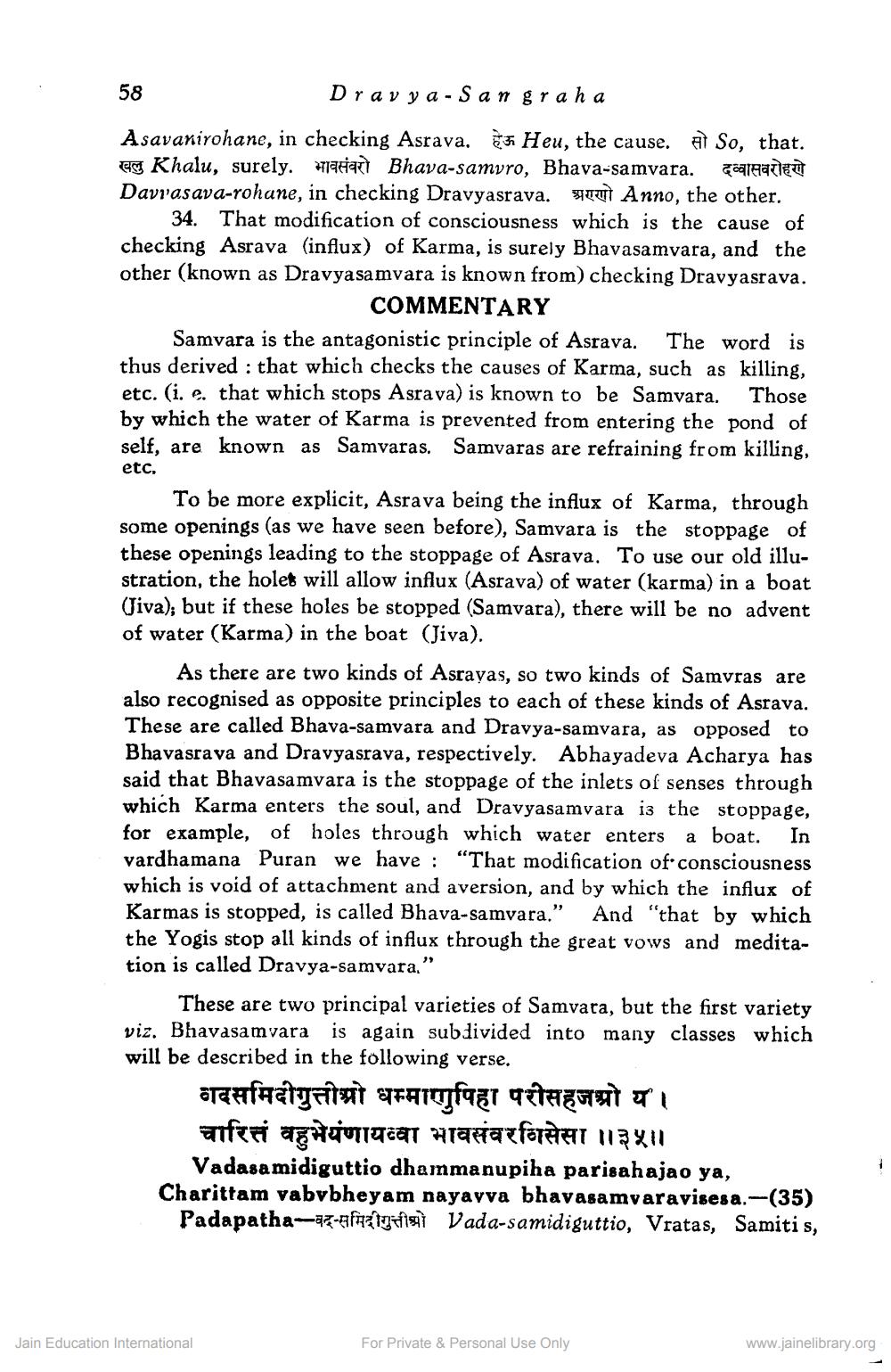________________
58
Dravya-Sangrah a A savanirohane, in checking Asrava. 5 Heu, the cause. À So, that. u Khalu, surely. 71989 Bhava-samvro, Bhava-samvara. FalATIET Davrasava-rohane, in checking Dravyasrava. U Anno, the other.
34. That modification of consciousness which is the cause of checking Asrava influx) of Karma, is surely Bhavasamvara, and the other (known as Dravyasamvara is known from) checking Dravyasrava.
COMMENTARY Samvara is the antagonistic principle of Asrava. The word is thus derived : that which checks the causes of Karma, such as killing, etc. (i. e. that which stops Asrava) is known to be Samvara. Those by which the water of Karma is prevented from entering the pond of self, are known as Samvaras. Samvaras are refraining from killing, etc.
To be more explicit, Asrava being the influx of Karma, through some openings (as we have seen before), Samvara is the stoppage of these openings leading to the stoppage of Asrava. To use our old illustration, the hole will allow influx (Asrava) of water (karma) in a boat (Jiva); but if these holes be stopped (Samvara), there will be no advent of water (Karma) in the boat (Jiva).
As there are two kinds of Asrayas, so two kinds of Samvras are also recognised as opposite principles to each of these kinds of Asrava. These are called Bhava-samvara and Dravya-samvara, as opposed to Bhavasrava and Dravyasrava, respectively. Abhayadeva Acharya has said that Bhavasamvara is the stoppage of the inlets of senses through which Karma enters the soul, and Dravyasamvara is the stoppage, for example, of holes through which water enters a boat. In vardhamana Puran we have : “That modification of consciousness which is void of attachment and aversion, and by which the influx of Karmas is stopped, is called Bhava-samvara." And "that by which the Yogis stop all kinds of influx through the great vows and meditation is called Dravya-samvara.”
These are two principal varieties of Samvara, but the first variety viz. Bhavasamvara is again subdivided into many classes which will be described in the following verse.
गदसमिदीगुत्तीमो धम्माणुपिहा परीसहजो य । चारित्तं वहभेयंणायव्वा भावसंवरगिसेसा ॥३५॥
Vadasa midiguttio dhammanupiha parisahajao ya, Charittam vabvbheyam nayayva bhavasamvaravisesa.-(35) Padapatha---
a tu Vada-samidiguttio, Vratas, Samiti s,
Jain Education International
For Private & Personal Use Only
www.jainelibrary.org




